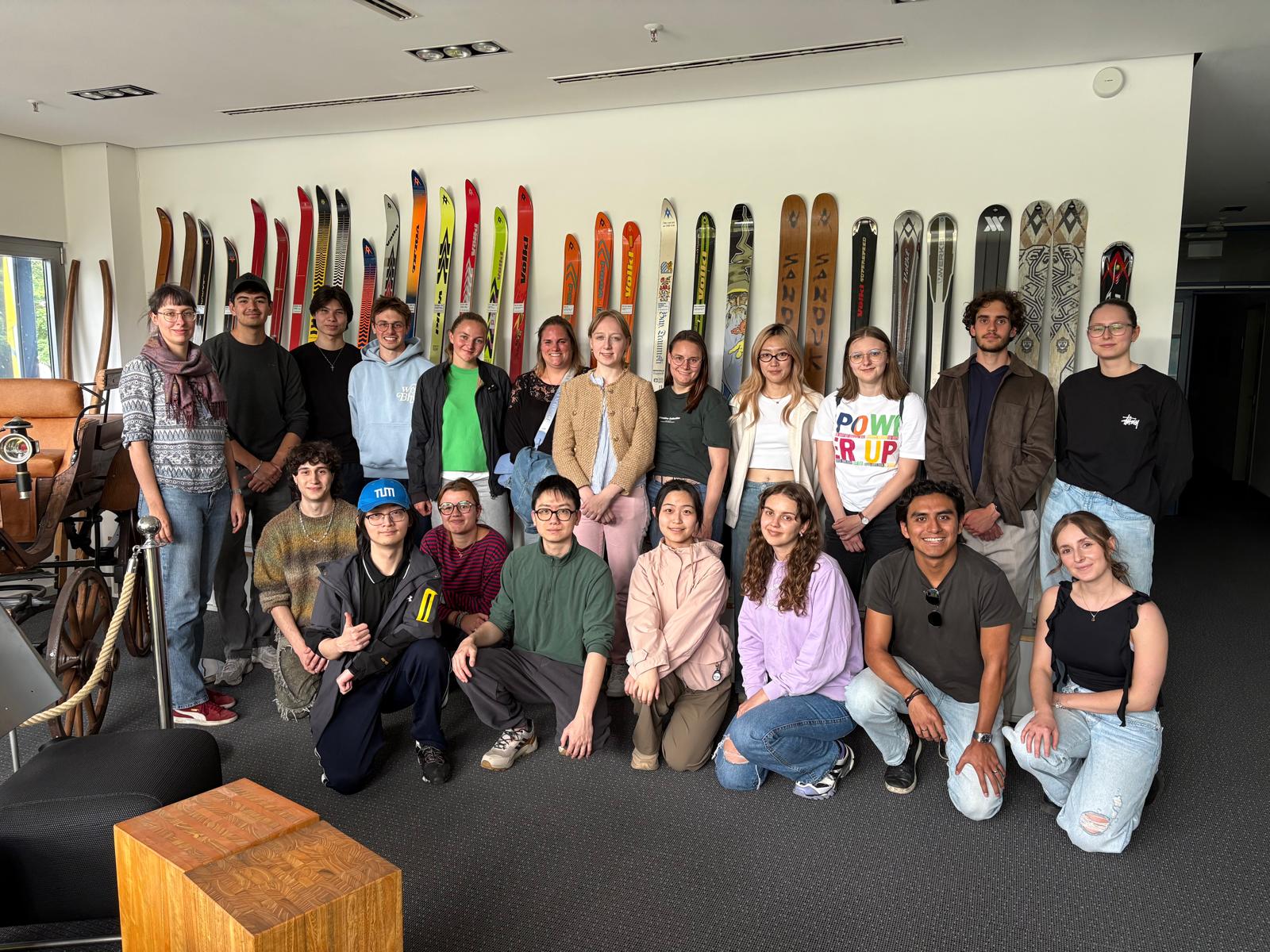As part of the "Circular Economy" course, a group of around 30 students visited the Völkl ski manufacturing facility in Straubing. The company is one of the leading brands in alpine winter sports and has been producing skis "Made in Germany" for decades – with around 90% manufactured directly at the Straubing site.
For a company in the winter sports sector, a sustainable transformation is becoming increasingly essential. The visit offered valuable insights into this ongoing transition and highlighted the role that Circular Economy principles are already playing today.
Divided into one German-speaking and one English-speaking group, participants were guided through the entire production process – from the screen printing of ski designs, to climate-controlled storage rooms, wood processing, the layering of materials, grinding, quality control, and shipping. Particularly striking was the smooth material flow: a trolley designed to hold 60 pairs of skis moves from station to station, gradually being filled until the finished products are completed. Despite the use of modern technology, many steps are still carried out manually.
In addition to technical precision, the topic of sustainability became a key focus. At various points in the tour, it became clear that Völkl is increasingly engaging with Circular Economy approaches and resource efficiency. For example, the production process currently generates waste materials such as wood cuttings and excess epoxy resin, which are still difficult for Völkl to recycle effectively.
However, we were repeatedly told that concrete steps have already been taken to address some of these challenges – such as take-back agreements with suppliers, where residual materials are returned, processed, and resold at a reduced price. In other areas, it was evident that strategies are still under development.
The visit made it clear: Völkl is in the middle of a transformation – with concrete approaches, visible challenges, and a growing awareness that Circular Economy practices in winter sports are not only possible, but necessary.
We sincerely thank Völkl for their openness, the valuable insights, and the opportunity to experience the connection between theory and practice in such a tangible way!
